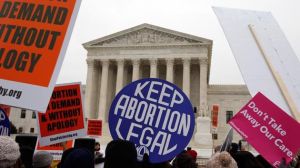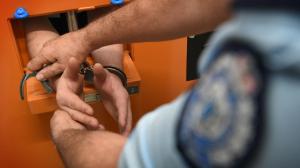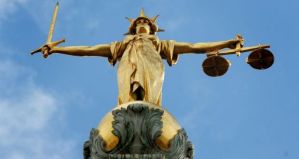Criminal Defense Attorney Seminole – Lowa Supreme Court blocks portion of 20-week abortion ban
Source : Reuters News
By : Timothy Mclaughlin
Category : Altamonte Springs DUI Lawyer , Criminal Defense Attorney Seminole

The Iowa Supreme Court on Friday granted an emergency temporary injunction halting a portion of a 20-week abortion ban that was signed into law by Republican Governor Terry Branstad just hours earlier. The law, passed by Iowa’s Republican-controlled House and Senate last month, bans abortions once a pregnancy reaches 20 weeks and stipulates a three-day waiting period before women can undergo any abortion.
The law does not make exceptions for instances of rape or incest but does allow for abortions if the mother’s life or health is at risk. The American Civil Liberties Union (ACLU) and Planned Parenthood, a group that provides family planning services, including abortions, challenged the waiting-period part of the legislation in court as well as the requirement for an additional clinical visit women must make before an abortion.
The state Supreme Court on Friday issued the injunction after it was denied Thursday by a district judge. “We are pleased that the court granted the temporary injunction, ruling on the side of Iowa women who need access to, and have a constitutional right, to safe, legal abortion,” Suzanna de Baca, chief executive of Planned Parenthood of the Heartland said in a statement.
The state will have an opportunity to respond to the court’s decision on Monday. “This is all part of the process and we’re confident that the stay will be lifted very shortly,” said Ben Hammes, a spokesman for the Republican governor.
Women in the United States have the right under the Constitution to end a pregnancy, but abortion opponents have pushed for tougher regulations, particularly in conservative states. There are 24 states that impose prohibitions on abortions after a certain number of weeks, according to the Guttmacher Institute, which tracks reproductive policy. Seventeen of these states ban abortion at about 20 weeks and after.
Iowa’s law, Hammes said after the signing, marked a “return to a culture that once again respects human life.” In Tennessee, a bill similar to the Iowa measure was sent to the desk of that state’s Republican governor on Wednesday to possibly be signed into law.
Read More : reuters.com/article/us-iowa-abortion-idUSKBN1811RX
DUI in Sanford – Illinois Supreme Court clarifies snow-shoveling law’s protections for property owners
Source : Chicago Tribune News
By : Tribune news services
Category : Orlando Criminal Defense Attorney , DUI in Sanford

Property owners can take comfort, but shouldn’t lapse into negligence, now that the Illinois Supreme Court has clarified a 1979 state law protecting them from some slip-and-fall lawsuits. The high court reaffirmed earlier this month that the Snow and Ice Removal Act shields property owners from liability if someone gets hurt because they didn’t do a good enough job of shoveling, but only when the snow or ice was the result of natural conditions.
The court ruled Dec. 1 that when lawmakers passed the law nearly four decades ago, they meant to protect property owners from injury claims resulting from inadequate shoveling. The law, the court said, was intended to encourage people to voluntarily clear their sidewalks.
But property owners aren’t free to ignore hazardous “unnatural accumulations” of ice and snow, the court said.
The case stems from a suburban Chicago woman who fell on an icy sidewalk outside her Carol Stream condo building in 2011, breaking her leg, knee and hip. Pamela Murphy-Hylton claims that inadequate drainage and the placement of downspouts caused the icy patch. She’s seeking damages from the condominium association and the property management company. Attorneys for Klein Creek Condominium Association and Lieberman Management Services had argued the law gave them immunity, winning a summary judgment in trial court that was reversed on appeal. The Illinois Supreme Court, in a unanimous opinion written by Justice Mary Jane Theis, affirmed the appellate court’s judgment and sent the case back to the trial court.
“The Snow and Ice Removal Act provides immunity to residential property owners from claims of liability for injuries allegedly caused by icy sidewalks that result from negligent snow and ice removal efforts, but it does not extend to immunize them from claims of liability for injuries allegedly caused by icy sidewalks that result from an otherwise negligent failure to maintain the premises,” Theis wrote. Attorney Kristina K. Green said her client has steep medical bills — possibly totaling $1 million — and is ready to resolve the case, either through mediation or at trial.
“The statute’s intent was you can’t get in trouble for attempts to clear the ice and snow,” Green said. “The ice that our client slipped on wasn’t the result of snow and ice removal efforts. The ice formed because there were defects in the property.” The Illinois Supreme Court ruling aligns with “the way the law was intended,” Green said. “We think it was the right decision obviously.” A phone message left for the attorney for the property manager was not immediately returned.
Read more : chicagotribune.com/news/local/breaking/ct-snow-shoveling-law-20161225-story.html
Altamonte Springs DUI Lawyer – New US Okinawa base backed by Japan Supreme Court
Source : BBC News
By : Agency Press
Category : Altamonte Springs DUI Lawyer , Criminal Defense Attorney Seminole

Japan’s Supreme Court has ruled in favour of the government’s plan to relocate a US airbase to a remote part of the island of Okinawa.The island’s governor wanted the base moved off Okinawa altogether and built in another part of Japan.
The US has about 26,000 troops and several bases in Okinawa as part of a deal with Japan after World War Two. Many Okinawans, including the governor, object to the alleged crimes and accidents attributed to the troops.
The government wants to move the US Futenma airbase from its densely populated site to a more remote area. Land reclamation work has already begun off the shore of Camp Schwab, the US base in Henoko, south of Nago city.
But construction work was suspended in March while judges heard the case. Resentment at the US presence has been growing among Okinawans, particularly since the 1995 gang-rape of a 12-year-old girl by US troops. Residents have also complained about the environmental impact of land reclamation.
Read More : bbc.com/news/world-asia-38381107
DUI Attorney in Sanford – The Nuclear Path To Legal Sports Betting
Source : Business Insider
By : THE LEGAL BLITZ
Category : Criminal Lawyer in Altamonte Springs , DUI Attorney in Sanford

The other Sunday something happened I thought was only possible in dreams — my wife actually asked me to watch football. I owe this small miracle to sports betting. The night prior we were at Delaware Park Casino playing poker when I decided to take advantage of the only legal sports betting East of the Mississippi, albeit a severely limited form. Delaware offers NFL parlay “lottery” cards due to an exception under the Professional and Amateur Sports Protection Act (“PASPA”) that grandfathered in existing sports betting laws in Nevada, Oregon, Montana, and Delaware when enacted in 1992. New Jersey also had an opportunity to legalize full-scale sports betting under PASPA, but bungled doing so in true Jersey fashion.
After filling out a variety of parlay cards, I asked my wife if she wanted to take a crack. She wisely went with the Patriots -6.5 over the Bills, Saints +3.5 over the Seahawks, and Packers +2.5 over the Falcons for a 5.5 to 1 payout. The first two picks hit fairly easily, but the Packers/Falcons game was heading toward a tight finish. With my Steelers on a bye and my fantasy team cruising to a victory, I was milling about the house pretending to be useful when I heard those glorious words: “Steve, come watch the end of this game.” You don’t have to ask me twice. We watched the entire fourth quarter together and celebrated the narrow Packers cover.
Paging Roger Goodell. If you want to pull the NFL’s ratings out of the gutter, here is a great way to do it. Americans are already wagering $149 billion annually on sports through bookies and offshore websites according to the American Gaming Association. By comparison, only $3.3 billion is wagered legally in Nevada sportsbooks. Fortunately, legal sports betting is slowly becoming a matter of “when” rather than “if.” A Congressional committee is now reviewing the incoherent patchwork of federal gaming laws including PASPA, the Wire Act of 1961 and the Unlawful Internet Gambling Enforcement Act of 2006 (UIGEA). Pennsylvania passed a resolution urging Congress to lift the federal ban on sports betting, New York Assemblyman J. Gary Pretlow is planning a legal challenge to PASPA in 2017, and Mississippi is eyeing a way to grab a piece of the potential tax revenue from legal sports betting.
Yet the best way to finally legalize sports betting, might be the craziest way. Despite dropping the ball in the 90s, and a series of recent federal court losses stemming from attempts to legalize sports betting, New Jersey is back at it with its most genius move yet – the so-called nuclear option. Introduced by Assemblymen Ralph Caputo and John Burzichelli, Assembly Bill 4303 would completely repeal New Jersey’s prohibition on sports betting. Doing so would allow anyone to open a sportsbook. In other words, the corner bookie could literally be on every corner.
The Bill has almost no chance of ever passing, but it is an attention-grabbing middle finger to PASPA that might just force Congress’ hand. PASPA prohibits “a governmental entity to sponsor, operate, advertise, promote, license, or authorize by law or compact, . . . a lottery, sweepstakes, or other betting, gambling, or wagering scheme based, directly or indirectly (through the use of geographical references or otherwise), on one or more competitive games in which amateur or professional athletes participate, or are intended to participate, or on one or more performances of such athletes in such games.” By completely removing all laws pertaining to sports betting, such as the seemingly necessary regulation of sportsbook operators, limiting sportsbooks to existing casinos, enforcing taxes, and monitoring wagers for signs of corruption, New Jersey could render PASPA useless. It is also a direct nod to the unintended consequences of a flawed Third Circuit decision preventing the Garden State from legalizing sports betting.
Read more : abovethelaw.com/2016/11/the-nuclear-path-to-legal-sports-betting/
Altamonte Springs DUI Lawyer – Supreme Court to hear case involving Google search results
Source : Metro News
By : Ryan Tumilty
Category : Altamonte Springs DUI Lawyer , Criminal Defense Attorney Seminole

Google will go before the Supreme Court in the weeks ahead, appealing an order that forced the tech giant to try to remove a company from the Internet. Equustek Solutions is a British Columbia company that got a court order against a competitor that was selling their patented technology online.
The injunction didn’t stop the company, so Equustek got an injunction demanding Google delist their competitor from its search-engine results. Google will appeal that decision in a hearing in the next few weeks, the Supreme Court confirmed Monday. In its submission to the court, the company argued it is simply a search engine and can’t be the enforcer of the Internet.
“Google is incapable of taking these websites offline. It is incapable of stopping the defendants from launching new websites,” it wrote. “It is incapable of preventing users in Canada or anywhere else from accessing the websites at issue.” It also argued the case is a freedom-of-speech issue, because the company can’t tell its users about something on the Internet. “Google’s speech is restricted, as it is now prohibited from truthfully informing the global public.” Trent Horne, a partner and intellectual property lawyer with Bennet Jones, said one of many interesting aspects of the case is that Google is being brought into a private dispute.
“They have never been accused of any wrongdoing, they have just been brought into the fray as an enforcement mechanism,” he said. He said the court will have to decide if order forcing Google to delist website should take place and what the test should be for imposing them. He said there is also a major question about the limits of Canadian courts. “You could have a Canadian court granting an order that obliges somebody in California to do something, which prevents an individual in England from buying something,” he said. Horne said the Supreme Court has not ruled in any cases that are similar to this, so it’s hard to have any idea how they might rule. “I am hard-pressed to think of something that is close.”
Read more : metronews.ca/news/ottawa/2016/11/21/supreme-court-to-hear-case-involving-google-search-results-.html





